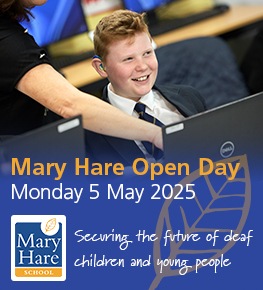Towards a National policy in the education of deaf children and young people
Please note: This content has been archived and therefore may no longer be up-to-date or relevant. It is kept online for your convenience. If you have any questions, please contact us.
In this document the term ‘deaf’ covers the full range of hearing loss to be found in the population.
Assumptions, Rights and Entitlements
EQUAL OPPORTUNITIES
Assumption
- equality of opportunity is a prerequisite of education.
Right
- to equality of opportunity regardless of degree or type of deafness
Entitlement
- not to be discriminated against on basis of degree or type of deafness.
THE ABILITIES OF DEAF CHILDREN AND YOUNG PEOPLE
Assumptions
- deaf children and young people are not all the same: they have differing needs and requirements.
- deaf children and young people have the same potential for language and learning as their hearing peers.
Rights
- to have their individual needs respected.
- to a full and relevant education in an appropriate educational environment, such that they leave education with optimal language and communication skills.
- to have literacy skills to enable them to take full advantage of the curriculum, including the National Curriculum.
- to develop the range of skills, knowledge and experiences required for individual fulfilment and independence.
Entitlements
- to educational services which respond to their needs through the provision of access to differing forms of support and a range of approaches to education.
- to qualified Teachers of the Deaf and other professionals who have skills to recognise, assess and meet their academic, personal and social needs.
- to a broad, balanced and relevant curriculum.
- to appropriate forms of assessment and accreditation.
- to have the optimum provision and management of personal and other amplification systems as appropriate.
IDENTITY
Assumption
- some deaf children and young people will grow up to be part of the deaf population: some will live fully in the hearing world and some will move between the two.
Rights
- to develop appropriate skills to enable them to participate in hearing and deaf communities to the extent which they themselves choose.
- to be valued in terms of both their deaf and hearing identities.
Entitlements
- to opportunities of access to both hearing and deaf communities.
- to be recognised, appreciated and valued as an equal member of society.
FAMILY
Assumption
- deaf children come from hearing or deaf families, from differing household structures and from differing ethnic and linguistic backgrounds.
Rights
- to have their family background recognised and valued.
- to have parental wishes recognised and considered.
Entitlement
- to an education which facilitates good relationships and communication within the family.




